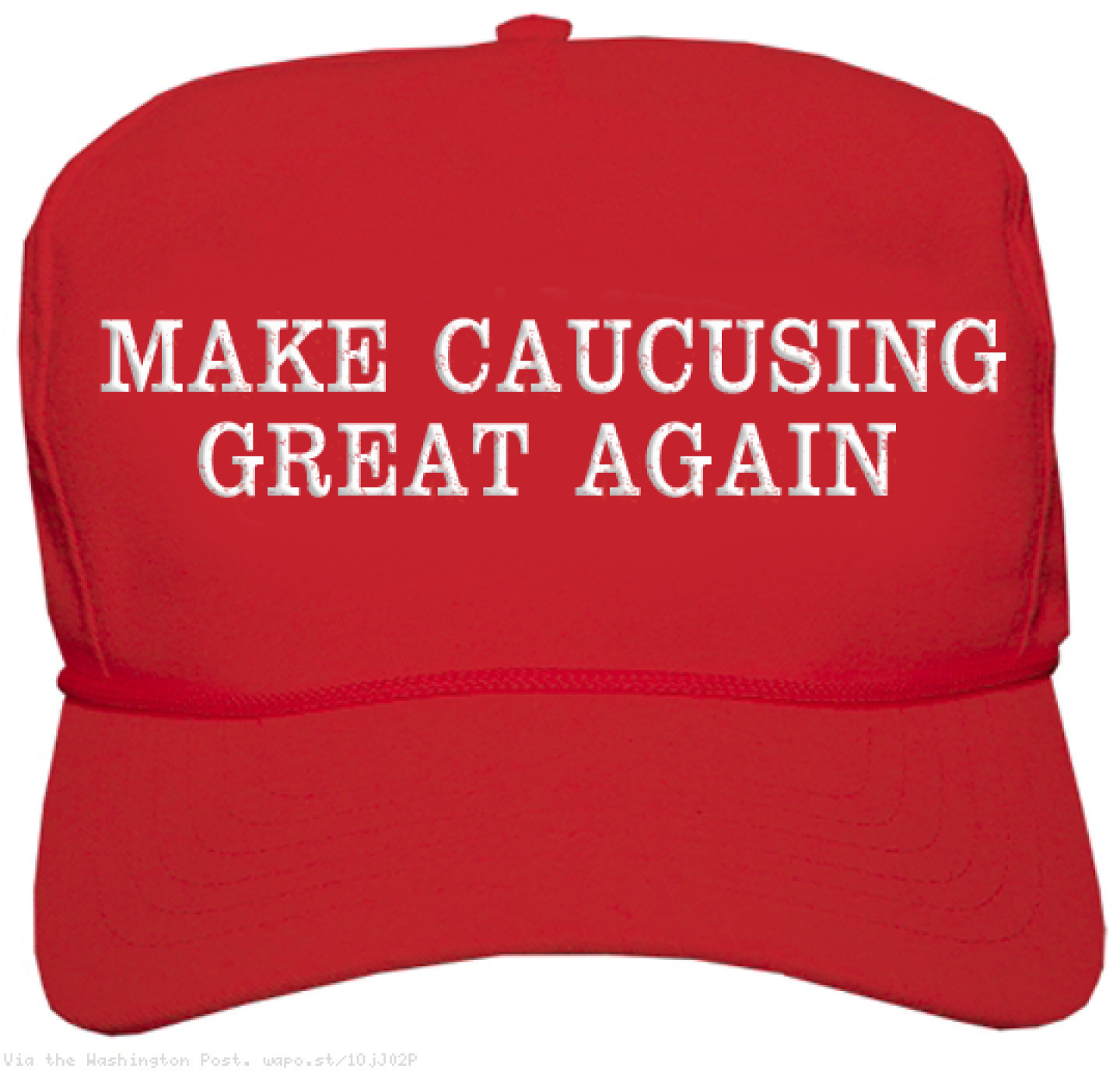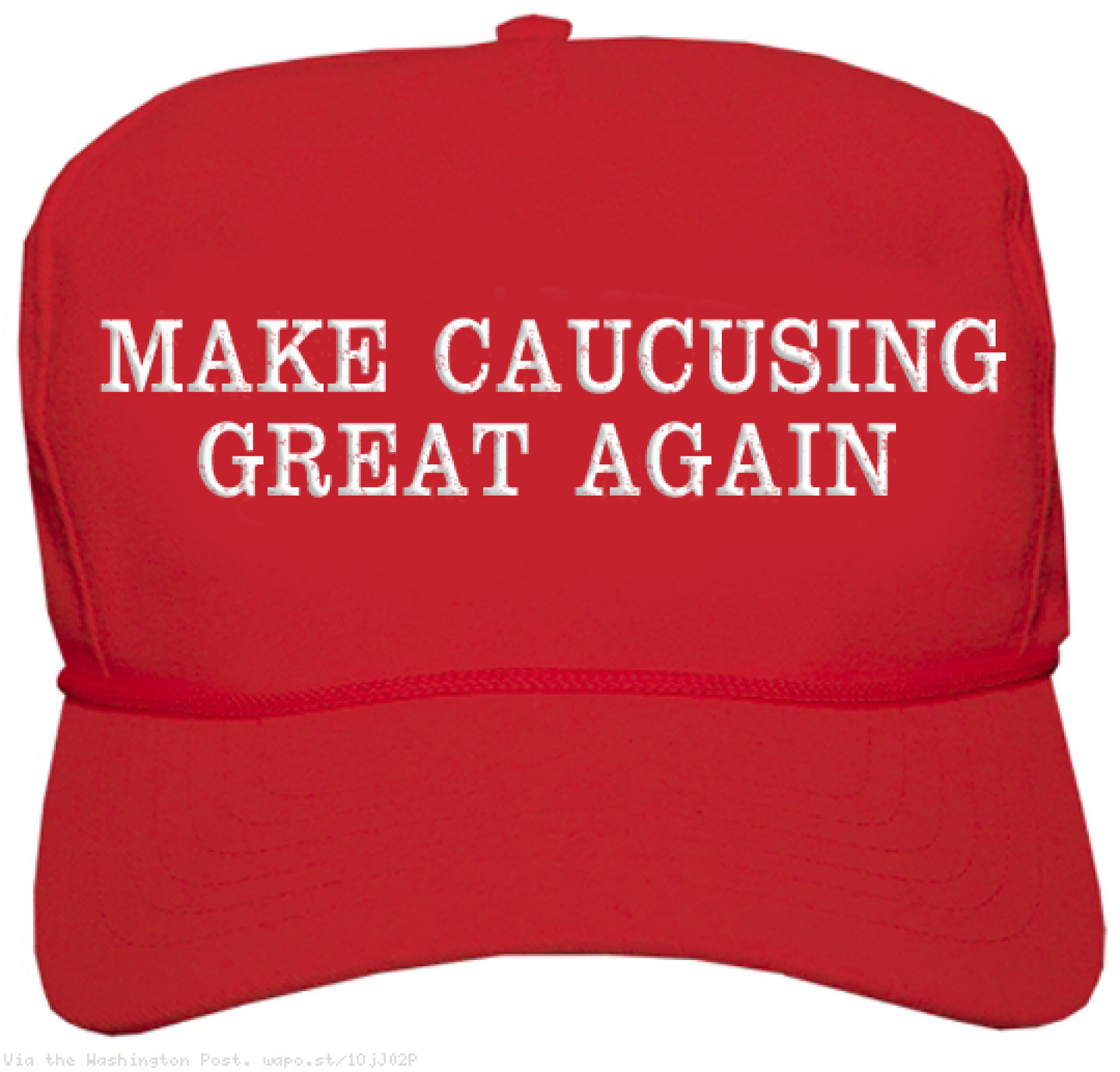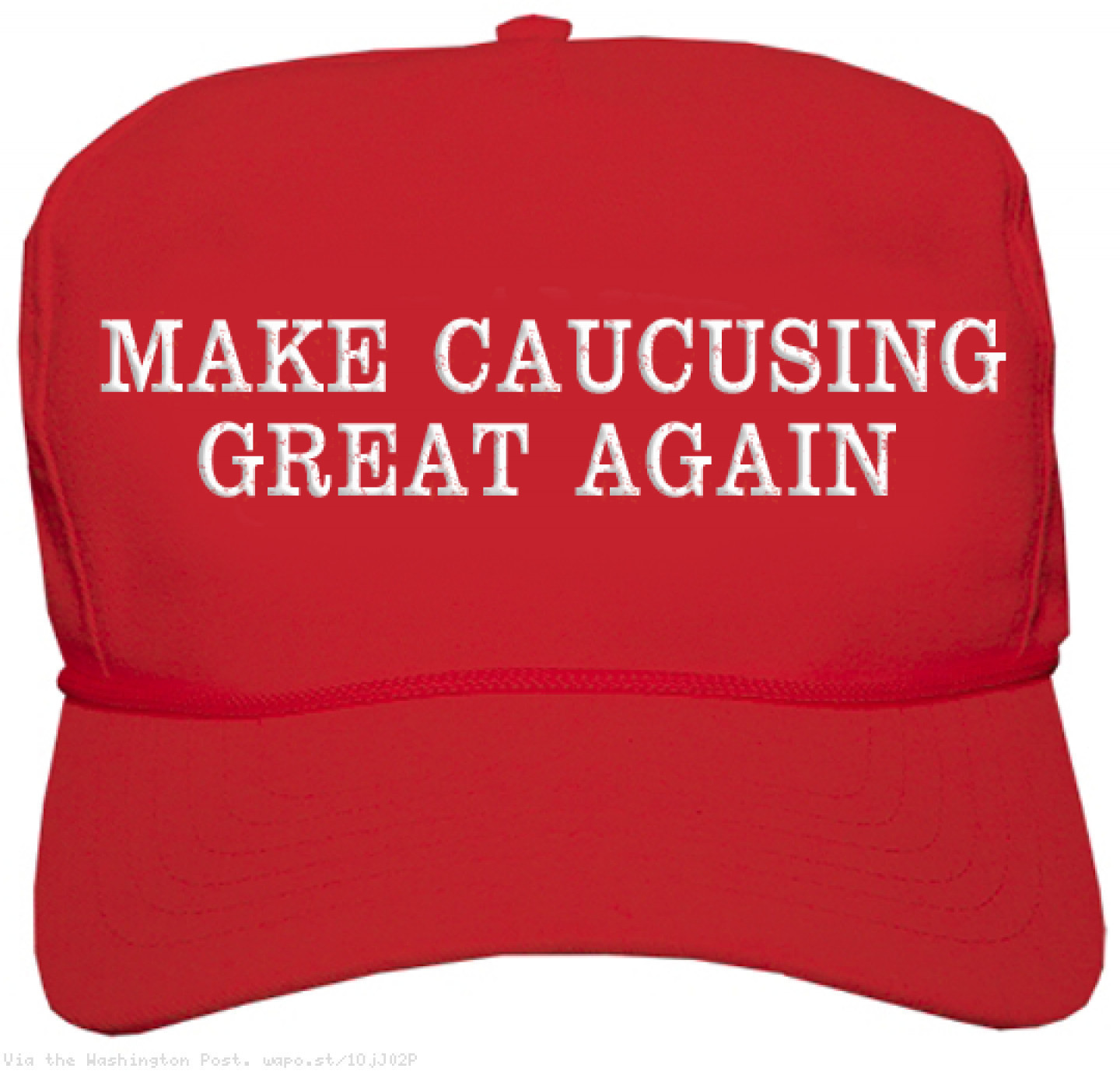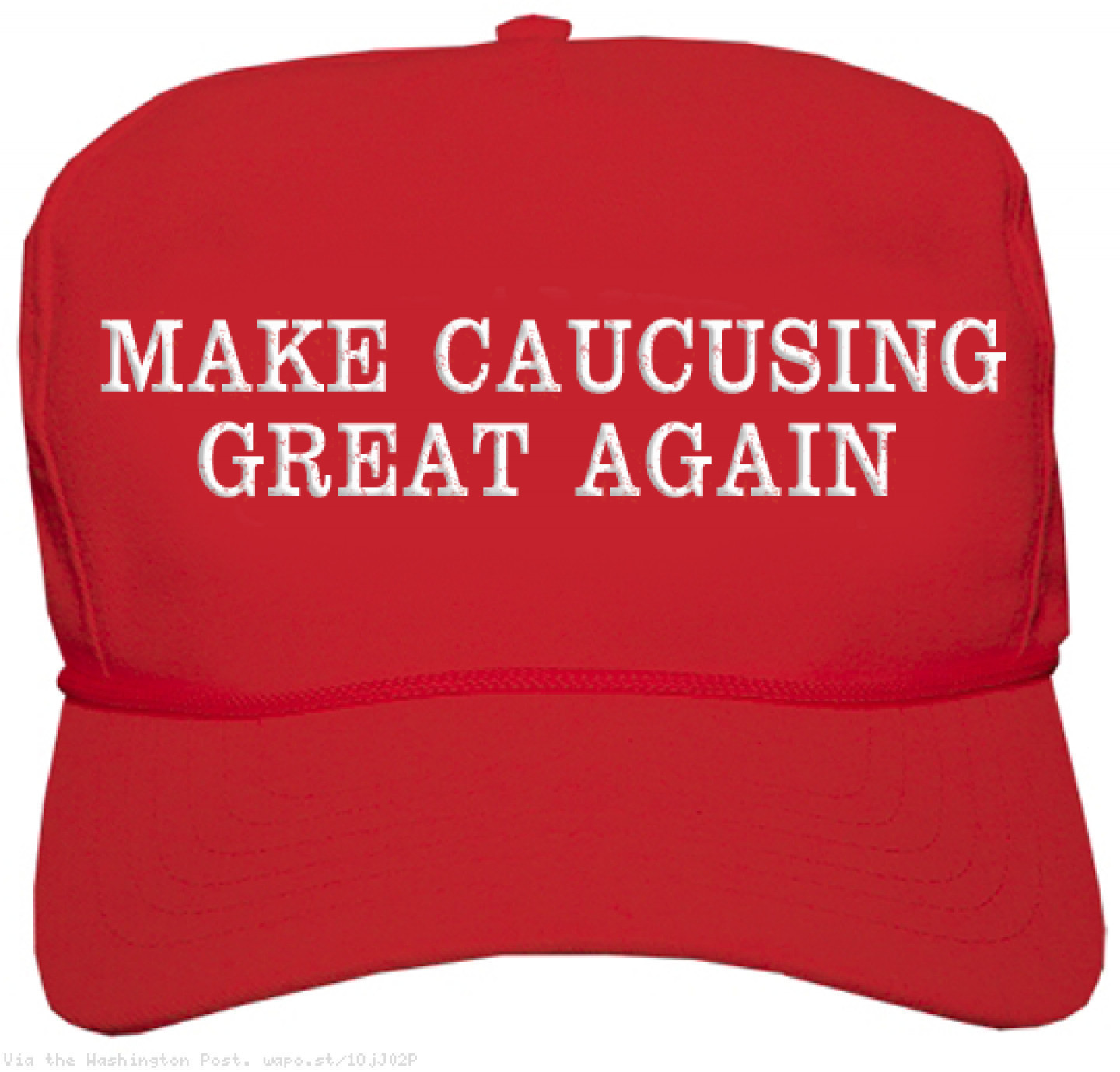***Disclaimer: Clear Counsel Law Group has not endorsed a candidate for President from any political party. Although we reserve the right to do so, we cover politics on the legal blog because we believe political participation is an essential element of a healthy democracy. God Bless America.***
“Never pick a fight with people who buy ink by the barrel.” –Mark Twain
Given how high the ratings were for last night’s debate1)According to Ben Jacobs of The Guardian, the debate ratings were higher than any Sunday Night Football game last season, it is very possible you, as well, sat through the two hour spectacle. Boy did it not fail to deliver in terms of entertainment value! A couple of non-Trump highlights before we attempt to unpack what is happening today.
The non-Trump participants
Mr. Christie vs. Mr. Paul: There has been some chatter2)Source Check out that last paragraph, hat tip to David Sirota as to when Mr. Christie actually started working as an U.S. Attorney3)Why let the facts get in the way for a good campaign anecdote?.
That got a bit contentious, eh? Mr. Paul should watch some old tape of his father debating from the past two Presiential election cycles. Ron Paul, while expressing views not in the Republican mainstream4)isolationist foreign policy/auditing the federal reserve, etc. he did so with a affable tone that did not turn people off, as if he was aware that most people watching did not agree with stances but that was still ok5)Mr. Saunders running in the Democratic primary is similar.
Mr. Paul needs to be more clear/careful when he says he is a “different kind of Republian.” That statement implies 1)There is something wrong with Republicans yet 2) Does not sufficiently clarify what he means. The snarky twitter folks last night mocked him ceaselessly for citing that he has been to Chicago/Detroit/Ferguson. What did he do while he was there? Anything of note?
Mr. Rubio: The consenus winner from the talking-heads. If you recall that silly moment he had during the Response to the State-of-the-Union6)with the water bottle. No link, sorry, it is time for all of us to let that go a few years ago, you could not come away as anything but impressed by the hard work he has clearly put in. This field is similar to the Democrat field in 2008 with a deep bench of quality candidates. One wonders if Mr. Rubio will play the part of Mr. Obama as the first term senator, more than a decade younger than most of the field, not willing to ‘wait his turn’ so to speak. He has made significant inroads with the non-Rand Paul-supporting Republicans in Nevada. If he is organizing with the same vigor in Iowa, New Hampshire, South Carolina he will have a real good shot at this thing.
Mr. Kasich: Now that is how you use a homefield advantage7)The debate took place in Clevlend, OH. Mr. Kasich is currently serving his second term as governor of Ohio! The crowd loved him as much as they disliked Mr. Trump. His brand of egalitarian Christianity played well on television; he is one of the few who remembers the type of compassionate conservatism that helped President Bush win two terms. When prompted to comment on Mr. Trump, he demonstrated to the rest of the field how to take the question with grace, a la “Mr. Trump has tapped into the frustration of voters.” He showed himself to be a serious contender; now the question remains if he can overcome his associations with the aspects of President Bush’s administration that people dislike. One could contend that he is more intertwined with President Bush than Jeb.
Mr. Huckabee: “The purpose of the military is to kill people and break things.” OOhhh. I am glad that is finally resolved. Somebody call Paul Bremer!
Mr. Carson: Still seems uncomfortable discussing foreign policy, a great finish though with his last two answers. You can see why he has polled well so far.
Mr. Walker: It is a bit surprising to see him at the bottom of post-debate polls, as he did not commit any gaffes. But in this post-Trump era of politics, playing it safe may not be good enough anymore.
Mr. Bush: It has been quite a while since he has been on stage in a debate setting, and he showed a little rust. Similar to when President Obama was in the primiaries in 2008, Mr. Bush struggled to put his views into a clean, easily-digestible soundbites. It might be time to use all the money he has acquired through fundraising for a large television ad-buy. He will want to prevent Mr. Kasich from gaining serious momentum from this debate, as they are chasing the same type of republican voter.
Mr. Cruz: He was clearly the most comfortable of the bunch on that stage. The post-debate polls have shown that the people liked his performance; speaking in a slow, clear way certainly helped. If Mr. Bush and Mr. Kasich are chasing one type of republican voter, Mr. Cruz and Mr. Trump are chasing the other. So long as Mr. Trump stays popular, it will be difficult for Mr. Cruz to rise above the pack.
Mr. Trump needs his own heading
Here is a little secret about political debates. You can only lose or not lose; there is no winning. Everyone watches in the modern era for the biggest gafffe, then mocks the poor candidate into political submission. But have we found the first gaffe-proof candidate? Here are a few clips of Mr. Trump from the debate, in case you missed the fun.
Wow, right? Mr. Trump, in the spin-room after the debate8)of course he does his own spin-room work attacked the moderators as asking him too tough of questions. However, they were tough on everyone, asking Mr. Bush to comment on his changing views of the Iraq invasion, asking Mr. Walker/Kasich/Christie about their states under-performing economy. It just came off like Mr. Trump is not used to answer argumentative quieries. Yet, if they are going to ask Mr. Bush about common core9)his business venture since leaving office in 2002, then they should have asked Mr. Walker about defeating organized labor, Mr. Paul about civil liberties, Mr. Cruz about cooking bacon with automatic weapons10)I kid Mr. Cruz, but that video was silly, and Mr. Trump about foreign trade. Overall, I thought the debate was moderated as well as it could be, compliments to Ms. Kelly, Mr. Baer and Mr. Wallace.
If you were watching the post-game show on any of the cable news channels, you would think that Mr. Trump’s campaign ended as soon as he finished his closing remarks. The technocrats responded like this:
The collapse of Trump? #GOPDebate Is that the narrative?
— toddstarnes (@toddstarnes) August 7, 2015
Early impressions? Rubio and Christie did very well. Walker, Kasich were solid. Jeb Bush seemed nervous, halting. Trump was a clown-show.
— Stephen Hayes (@stephenfhayes) August 7, 2015
Donald Trump’s support has flipped in my focus group following tonight’s #GOPDebate.#KellyFile
— Frank Luntz (@FrankLuntz) August 7, 2015
Mr. Luntz’s focus group, broadcasted on the Fox News soon after the debate ended, was very harsh toward Mr. Trump.
Mr. Cohen, Mr.Trump's lawyer11)whom you may remember for his interesting definitions of rape from a week ago said:
A total setup by @FrankLuntz and #FOXNEWSDEBATE to try to lower #Trump2016 high poll numbers. American people will not fall for your tricks.
— Michael Cohen (@MichaelCohen212) August 7, 2015
In the pre-internet era, there would no other conclusion to draw but that Mr. Trump is ruined politically. Yet, the internet remains the true, democratic political force. The people no longer need to talking-heads to speak for them, they go online and speak for themselves. According to the babbling heads on the TV, no matter what channel, the winners of the debate were Mr. Rubio, Mr. Kasich and maybe Mr. Huckabee. Now look at these polls:
They all look like that! Mr. Trump won by at least 3 touchdowns, mostly certainly, he covered the spread. The television plutocrats may need to take a hard look at themselves; just because they want Mr. Trump to lose, does not mean that he is losing. They are not on the television to tell us who they think should win, but who won! These are different concepts.
How is this happening?
I do not know for sure, but I am happy to do a little guessing:
- The plutocrats are out of touch with republican primary voters. The party is more broad than the country-club types that watch CNBC religiously. Your salt-of-the-earth primary voter cares less about GDP and national budgets than immigration, guns, abortion, trade etc.. Mr. Trump speaks to these issues with a clarity12)there are many options for the correct word here in a way that is rare in modern American politics.
- People like strong leadership. The populace, regardless of party, wants boldness from our leadership. From the looks of the polling, people value strength much more than sensitivity, seemingly to the extent that they do not care how insensitive that boldness is. There is a growing irritation with the voting public over politicians saying things in campaign season, then reneging once they come into office13)if your only goal is to stay in office, this makes plenty of sense. Maybe it is that the republican voters see Mr. Trump as a man of his word.
- Expectations of politicans have changed. With the growth of social media, we are all in each other’s business to an extent never-before-seen. We expect everyone, from our celebrities to business people to live their lives publically and transparently. Politican double-speak, aloofness, and detachment may not be viable anymore. People may want their politicans to be as accessible as their reality TV stars.
It is very possible that none of those reasons are why, but we will not know for sure until if/when Mr. Trump drops in the polls.
As it turns out, Mr. Trump has no interest in backing down from the Fox News Machine:
.@FoxNews you should be ashamed of yourself. I got you the highest debate ratings in your history & you say nothing but bad...
— Donald J. Trump (@realDonaldTrump) August 7, 2015
Not that I have a dog in the fight, but Mr. Trump would be advised to adhere by the Mark Twain quote above.
Before we go, for entertainment purposes only, Jimmy Vaccaro (The oddsmaker of Vegas oddsmakers) published odds of winning the republican nomination before the debate:
- Jeb Bush — 2/1
- Scott Walker — 3/1
- John Kasich — 7/1
- Mike Huckabee — 12/1
- Marco Rubio — 20/1
- Chris Christie — 20/1
- Donald Trump — 20/1
- Bobby Jindal — 30/1
- Ben Carson — 30/1
- Ted Cruz — 30/1
- Rand Paul — 30/1
- Lindsey Graham — 50/1
- Rick Santorum — 50/1
- Rick Perry — 75/1
- George Pataki — 100/1
- Carly Fiorina — 100/1
- Jim Gilmore — 250/1
- Mark Everson — 500/1
14)Source: LV Sun . If I was a betting person, I would buy a ticket for Ms. Fiorina at 100/1; talk about a live dog!15)betting term for a underdog with a good chance of winning, calm yourself. She put on a clinic during the first debate, even if she was foiled by Mr. Perry16)I kid Mr. Perry; he did much better than four years ago. Come the next debate, I expect her to give the front-runners all they can handle.
Do you think the debate changed these odds? Leave a comment telling us why. And show your work!
In case you were wondering what Ms. Clinton was up to last night..
I got my selfie!!! I really loved hearing her speak & hearing her goals for our country! #HillaryForPresident pic.twitter.com/zGpdcGSZBD
— Kim Kardashian West (@KimKardashian) August 7, 2015
More debate coverage!
Footnotes
| ↑1 | According to Ben Jacobs of The Guardian, the debate ratings were higher than any Sunday Night Football game last season |
|---|---|
| ↑2 | Source Check out that last paragraph, hat tip to David Sirota |
| ↑3 | Why let the facts get in the way for a good campaign anecdote? |
| ↑4 | isolationist foreign policy/auditing the federal reserve, etc. |
| ↑5 | Mr. Saunders running in the Democratic primary is similar |
| ↑6 | with the water bottle. No link, sorry, it is time for all of us to let that go |
| ↑7 | The debate took place in Clevlend, OH. Mr. Kasich is currently serving his second term as governor of Ohio |
| ↑8 | of course he does his own spin-room work |
| ↑9 | his business venture since leaving office in 2002 |
| ↑10 | I kid Mr. Cruz, but that video was silly |
| ↑11 | whom you may remember for his interesting definitions of rape from a week ago |
| ↑12 | there are many options for the correct word here |
| ↑13 | if your only goal is to stay in office, this makes plenty of sense |
| ↑14 | Source: LV Sun |
| ↑15 | betting term for a underdog with a good chance of winning, calm yourself |
| ↑16 | I kid Mr. Perry; he did much better than four years ago |




